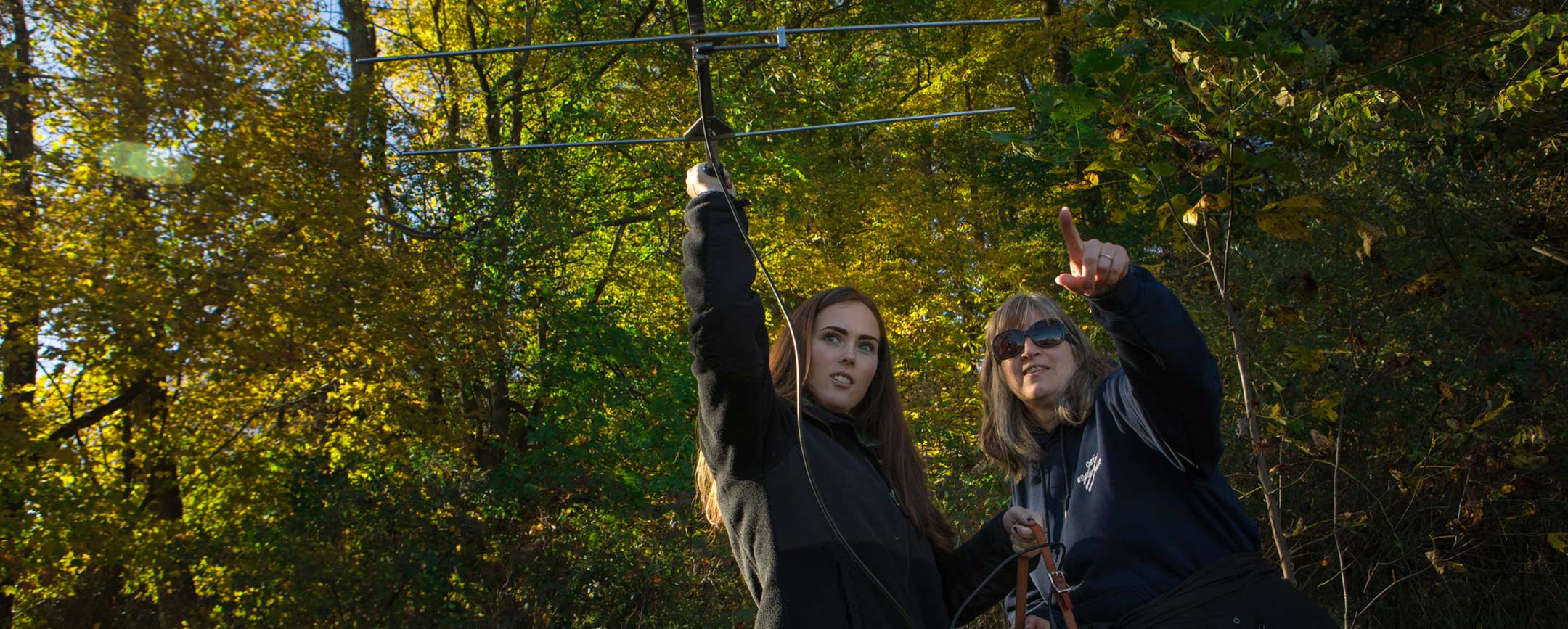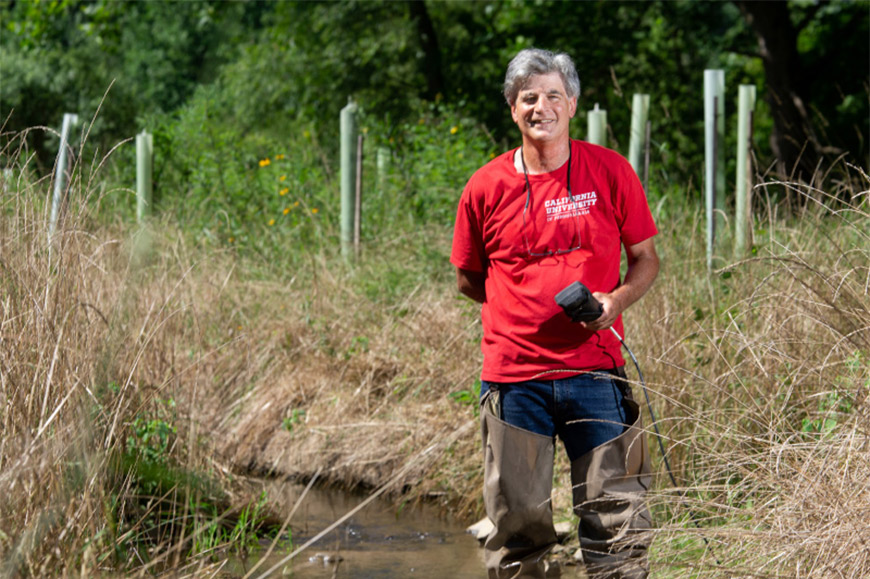
Fisheries and Wildlife Biology
Prepare to meet the growing demand for fisheries and wildlife management professionals with a Bachelor of Science in Fisheries and Wildlife Biology from PennWest University. If you’re passionate about the outdoors and conservation, this program can help you achieve a meaningful career.
The curriculum, centered on the biology and ecology of fish and wildlife, incorporates knowledge from various fields, including physical, chemical, and geological sciences, as well as mathematics and statistics. You’ll gain practical skills through hands-on learning in natural habitats, using advanced resources such as computer labs, animal rooms, greenhouses, herbariums, and teaching museums.
As a student, you’ll learn techniques and philosophies of fisheries and wildlife management to analyze and interpret environmental data. Extensive field opportunities, including internships and research projects, will deepen your understanding and connect you with future employers.
Engage with academic societies and clubs like Beta Beta Beta, the Wildlife Society, the American Fisheries Society, the Sustainability Club, the Bass Fishing Club, and the Biology Club to enhance your student experience and professional network.
This program is for you if...
- You have a passion for wildlife conservation and management
- You enjoy hands-on learning through laboratory work and field studies
- You are interested in the scientific methods and techniques used in fisheries and wildlife biology
- You want to pursue a career in environmental science, conservation, or natural resource management
- You are eager to make a positive impact on the environment and wildlife populations
-
120 Credits for BS
What You'll Study
In the Fisheries and Wildlife program at PennWest University, you'll study a comprehensive curriculum focused on the biology and ecology of fish and wildlife. The coursework integrates knowledge from physical, chemical, and geological sciences, alongside mathematics and statistics. You'll engage in hands-on learning through field studies, laboratory work, and practical applications in natural habitats. This program also covers techniques and philosophies of fisheries and wildlife management, preparing you to design, analyze, and interpret environmental data effectively. Advanced resources and extensive field opportunities enhance your educational experience.

| Degrees, Certificates, Minors | Offered at... | |||
|---|---|---|---|---|
| California | Clarion | Edinboro | Global Online | |
| Fisheries and Wildlife Biology, BS | Program Offered At This LocationIn-Person | Program Offered At This LocationIn-Person | Program Offered At This LocationIn-Person | Program Not Offered At This Location |
| Fisheries and Wildlife Biology, Minor | Program Offered At This LocationIn-Person | Program Offered At This LocationIn-Person | Program Offered At This LocationIn-Person | Program Not Offered At This Location |
Meet Our Faculty
Our faculty are not just instructors; they are mentors, researchers, and industry professionals committed to providing an education grounded in real-world experiences and academic excellence. From engaging classroom discussions to hands-on experiential learning, our educators are here to support and inspire you every step of the way.
How You'll Learn
This program is offered in-person. An in-person degree emphasizes traditional in-person courses at one or more of our locations.
What You'll Become
As a graduate of the Fisheries and Wildlife program at PennWest University, you'll become a skilled environmental scientist equipped to tackle challenges in wildlife conservation and natural resource management. You’ll be prepared for careers in environmental consulting, wildlife management, conservation agencies, and research institutions. With expertise in ecological assessment, data analysis, and field research, you’ll play a crucial role in preserving and managing fish and wildlife populations. Your hands-on experience and practical skills will enable you to make meaningful contributions to environmental sustainability and conservation efforts.
Career Paths
- Natural Sciences Managers
- Wildlife Biologists
- Conservation Scientists
- Environmental Scientists and Specialists
- Environmental Science and Protection Technicians
- First-Line Supervisors of Farming, Fishing, and Forestry Workers
PennWest earns 2024 Governor’s Award for Environmental Excellence
Pennsylvania Western University is among the recipients of the 2024 Governor’s Award for Environmental Excellence for wetlands restoration work at Presque Isle State Park.

How We'll Help You Succeed
At Pennsylvania Western University, we prioritize your success and well-being from the moment you join our community. Our comprehensive student support system is designed to meet you where you are, offering personalized guidance, academic assistance, and emotional support to ensure you can fully focus on your studies and personal growth. Whether you're a first-generation college student, returning for further education, or navigating career changes, our dedicated faculty and staff provide the encouragement and resources you need to overcome challenges and thrive. With a wide range of services from tutoring and career counseling to mental health resources, PennWest stands by your side, empowering you to achieve your academic goals and prepare for a successful future. Join us at PennWest, where you're not just a student; you're part of a supportive family committed to helping you find your place in the world.
Prepare for certification
Take coursework required for certification by the Wildlife Society and the American Fisheries Society.
-
Affordable Programs
Tuition & FeesDiscover quality education that fits your budget with our affordable programs at PennWest.
-
Success Coaching
Success at PennWestAchieve your academic goals with personalized guidance from our dedicated student success coaches.
-
Post-Graduation Support
Life After PennWestWe're here for you even after graduation, providing support and resources to help you succeed in your career.

